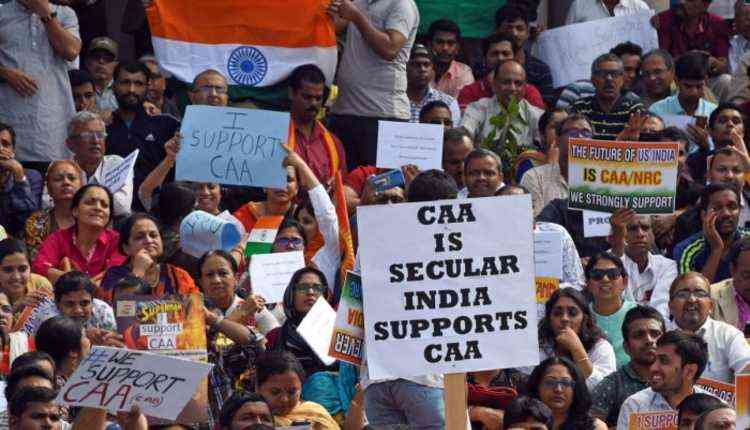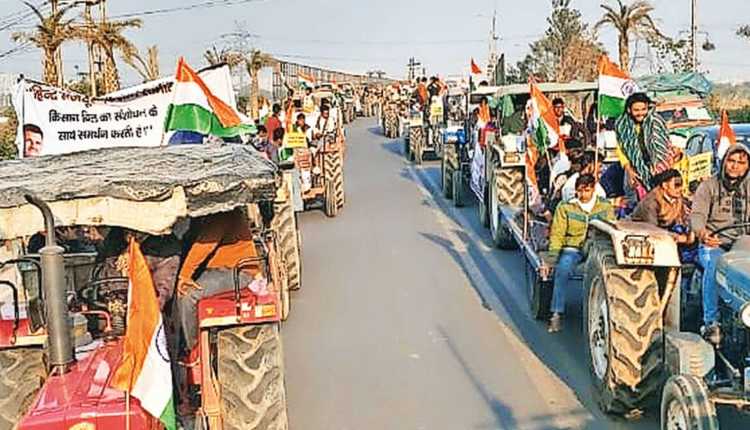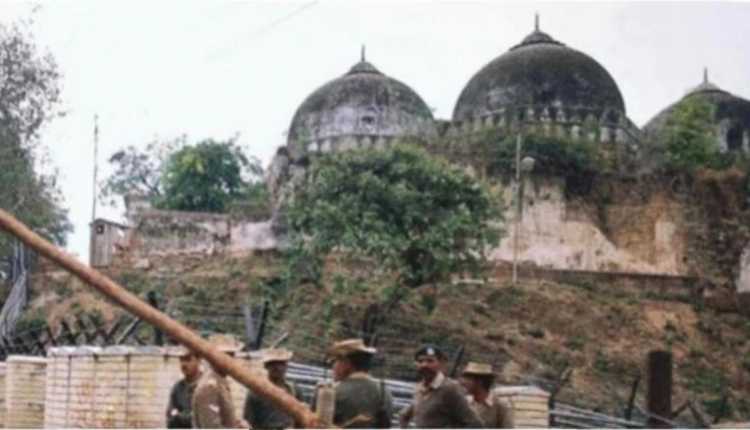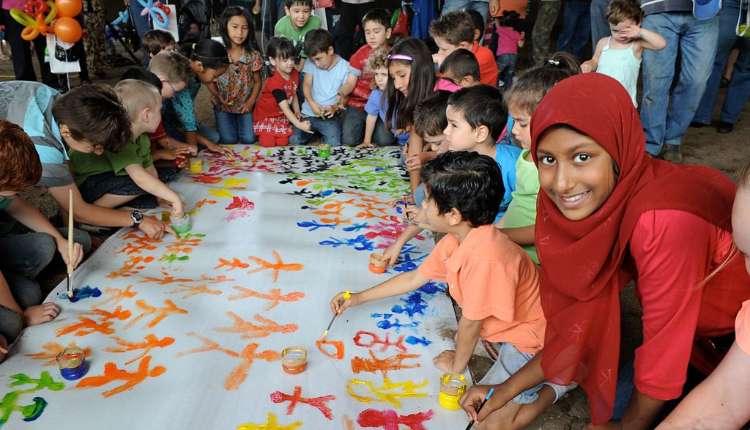The world’s 2nd largest populated Nation with more than 1.3 billion people shows major diversity in ethnicity and religion. India gave birth to four religions – Hinduism, Sikhism, Buddhism, and Jainism. The 2011 Indian census provided the data that approx., 79.8% of the total population of India adheres to Hinduism, 14.2% is practising Islam, 2.3% is practising Christianity, 1.72% is practising Sikhism, 0.7% is following Buddhism, and 0.3% adheres to Jainism.
Religion in India has always been a very sensitive topic. The constitution of India gives every citizen the “Right to religion”, and every individual is free to choose his/her religion and can change it at any point in life. India is officially a secular country, and the rights of minorities in our country against any sort of discrimination and ferocity are protected by the basic fundamental rights described in the Indian Constitution.
Although the religious rights in India are explicitly protected by the Indian Constitution, India Often experiences a very high level of religious tension between the majorities and the minorities. Mainly these religious tension arises between the Hindu majority and the Muslim minority. The difference in languages, cultures, philosophies, civilization, thinking, and ideas among these two groups usually create conflicts. Their differing point of views of seeing this Nation’s history is also one of the reasons why Hindus and Muslims are not able to sail on the same boat even after 70 years of Independence from the Britishers.
Let us see the different historical point of views in a bigger picture:-
Many of the Hindus believe that Mughals were wicked and sinful foreign people who came to India to destroy their religion and dynasties and wanted to create their dominance over this Nation, and that is one of the reasons Hindus, even in the present era, are not able to accept Muslims as a part of this Nation.
On the other hand, the Majority of the Muslims believe that Mughals were good people who came to India for trading purposes but then eventually remained here to become a part of this country and to share their culture. They did a lot of good things too.
Now you see the ideas and perspective of these two parties were never matching since the very beginning of the historical events in India, so walking on the same path by holding hands together even in the present is pretty much a task for them.
Now over the past few years, there is a noticeable rise in conflicts between Hindus and Muslims in India, and these are not merely because of the cultural differences between these two communities or be it any other communities. The prominent, widespread increase in the ideology of Hindutva or “making India a Hindu nation” by the Hindu right-wing Indian Government and several political parties did spread a lot of insecurities in the minority groups, especially Muslims. The Hindutva ideology did put an immense amount of fear among the Muslim groups as these groups supposedly feel threatened by the fact that the ideology of making India a predominantly Hindu nation might humiliate their rights and might destruct the idea of secularism and integrity. But that is just one perspective of seeing the Hindutva ideology. People supporting this ideology often represent it as an act of protecting the Hindus as they believe that there shouldn’t be any erosion and destruction of Hindu culture, and the religious rights of Hindus should also be protected. Many of the Hindus believe that if we won’t save the rights of Hindus, sooner or later, the race of Hindus would become a minority in this Nation and would eventually be wiped off by force and by fraud. And to save the Hindu religion from disappearance, many self proclaimed defenders of Hindu religion upfront as a saviour Hindu religion. But again, the perspective of the Muslim religion is entirely different as they believe that this is a strategy to grow communal hate between these two communities.
Again, these religious issues are not new at all in India. They were there, but there is a massive increase in communal hate and riots in India after the change in government. The current government of India did bring out certain laws that not only lightened fire amongst these different communities of India but also defamed the Nation globally at a certain level.
Now coming onto the laws which have been passed by the government which globally affected our Nation’s image and led to few riots:-
The citizenship (amendment) act

The entire citizenship (amendment) bill, 2019, is based on religion, i.e., granting citizenship to migrants on a religious basis. However, the government claims that this citizenship act is just to protect the religious minorities (especially Hindu minorities) in neighbouring nations and to stop the illegal immigration of certain religious population, mainly Rohingya Muslims from Myanmar and Ahmadiyyas from Pakistan. Now since this whole act is particularly pointing out the religious minorities, Muslims in India is taking this whole citizenship act as an anti-muslim act, and they believe that this act is a complete deterioration of secularism in India as the government is just targeting the minorities. This whole conflict between the government and the Muslim minorities led to a heavy, chaotic situation and “The Delhi Riots 2020”. On the eve of 23 February 2020, a massive riot broke out in the North-eastern part of the Capital, which led to a lot of bloodshed and violence among the communal protestors. People were left injured, protestors died, and properties were burnt.
The Farmer’s Bill/act

The farmer’s Bill, which was passed for the farmers of India, as the government of India claimed, is a revolutionary bill for Indian farmers but eventually turned into chaos. Farmers of India claimed it as an anti- farmers bill, and they came onto the streets to protest against it. The farmers union of Punjab and Haryana said that this is a whole strategy of the central government to dismantle the whole system and to dictate over farmers. They said that the government is just going to empower the big corporate companies, and there is even no legal guarantee of MSP. So farmers (especially from Punjab and Haryana) gathered at the borders of Delhi. But how is it eventually turned into a religious issue?
Farmers union from Punjab and Haryana, on 26 January 2021, i.e., on Republic day, did a tractor march all over Delhi and raised the Khalistani flag along with the Indian flag on Red fort and claimed it as a secular mass mobilisation against the right-wing government of India. Sikh farmers were labelled as “Khalistanis”. Despite being called Khalistanis, farmers of India got enormous support from the public and even from the foreign population as farmers said that this was just a strategy to defame farmers at a global level, and the manipulated media is still supporting the Indian government.
The Ram mandir Dispute

The land of Ayodhya was always in socio-religious debates for years. According to Hindu beliefs, Ayodhya is the birthplace of Hindu God Ram, and it was a holy place of Hindus and there used to be a temple that was demolished by the Mughals and Babri-Masjid was created. However, Muslims disagree with this fact and claim that the Mosque was created in 1528, and this land originally belongs to Mughal emperor Babur.
On 6 December 1992, Babri Masjid claimed to be demolished by some Hindu Kar Sevaks, which eventually triggered a communal riot, and more than 2000 people were killed at that time. On 9 November, a hearing was done in Supreme court led by that time CJI Ranjan Gogoi and Ayodhya land was given to Ram Janmabhoomi Nyas to build a Ram-Mandir and extra 5 acres of land was given as compensation to construct a mosque, and that is how this whole religious issue was resolved.
Even after all the religious issues, conflicts, fights, riots, and communal hate. India as a nation Survived. The constitution claims India is a secular nation, and it will always remain a secular nation no matter how many religious ups and down this country would witness. And supposedly, that is the beauty of this democracy that even after so many religious and ethnic differences, it is still standing strong with integrity.


